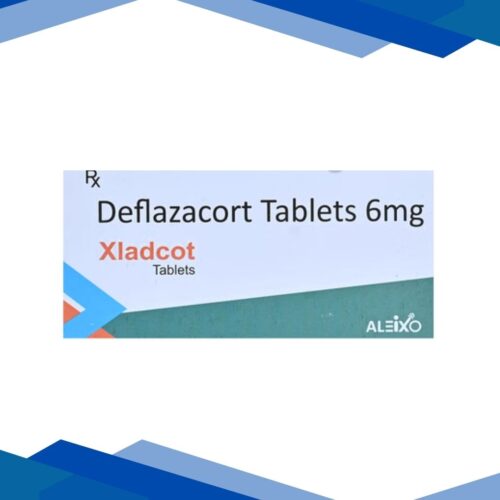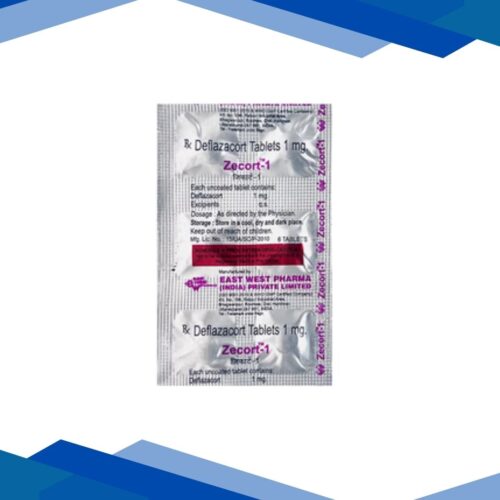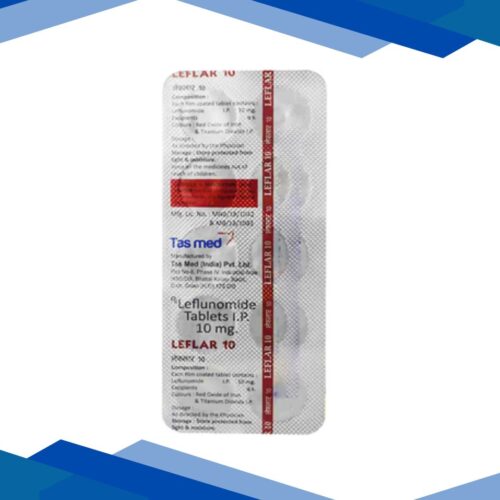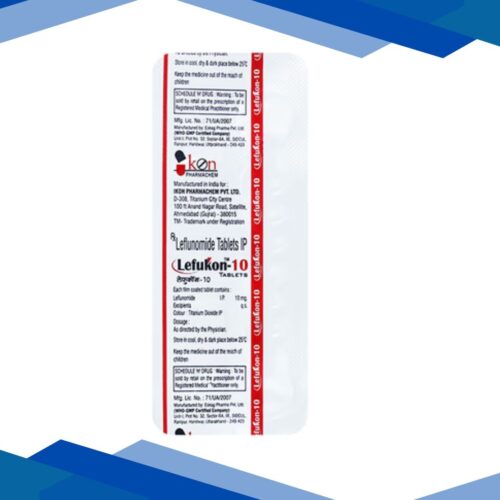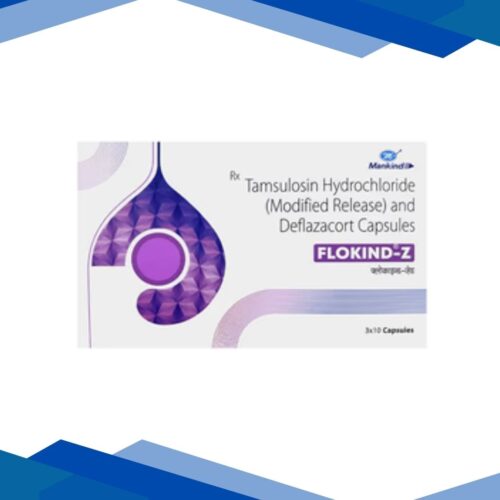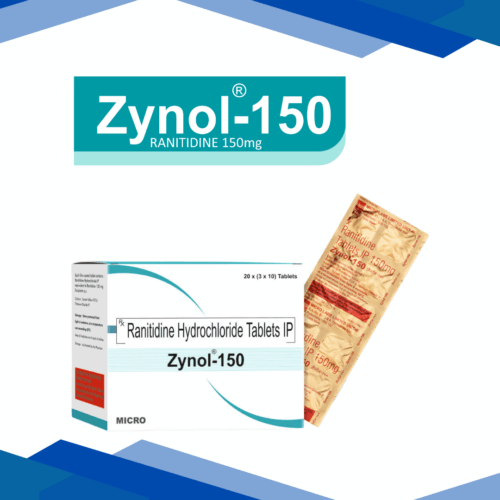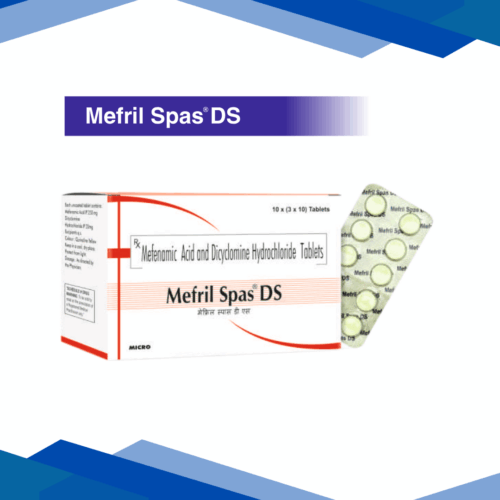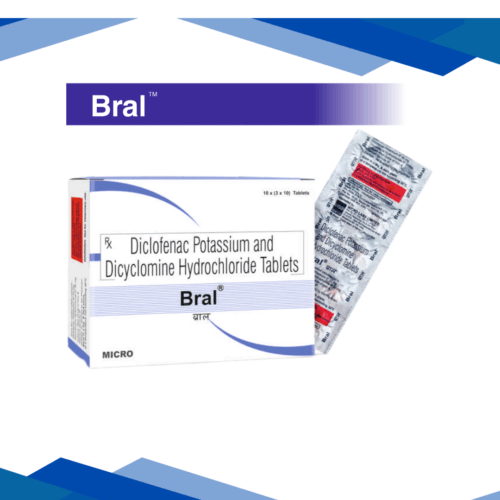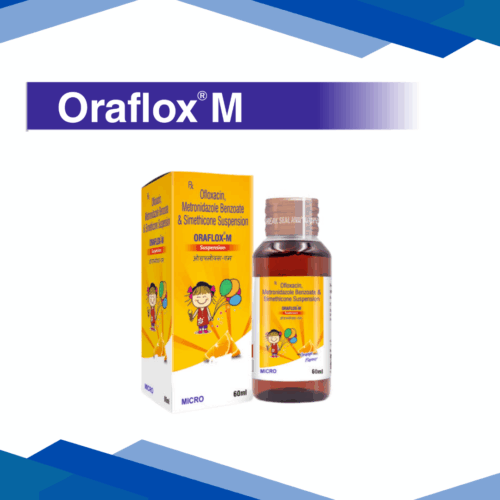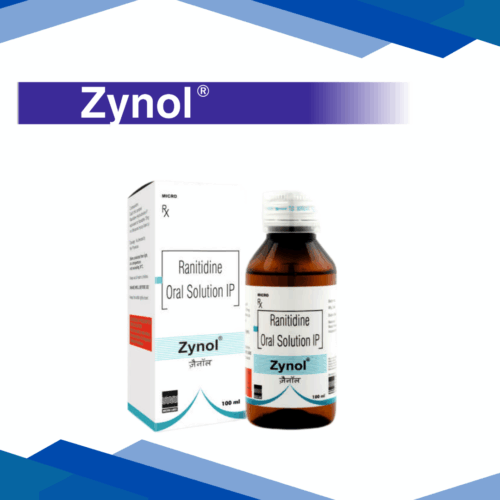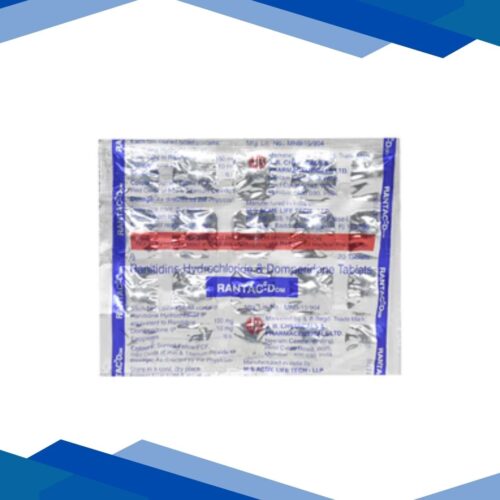FLOKIND Z Capsule 10’s
Smithcon Acid
No Prescription yet? Don’t worry! Click Here to Get Online Consultation
Why Prescription is Required?
✅ Providing Right Medicines
Prescriptions are complex documents. We proofread and recheck at various steps to provide you the right medication in the correct form and dose.
⚖️ Helps Comply with the Law
Most medicines cannot be sold without a valid prescription, as per the Drugs and Cosmetics Act, 1940 and Rules, 1945.
Book Appointment with Doctor
Ranitidine, dicyclomine, and simethicone are used together to reduce stomach acid, relieve abdominal cramps, and eliminate gas and bloating. For more details kindly click on Medicine Salts below:
Dicyclomine
DICYCLOMINE
Overview:
Dicyclomine (also known as Dicycloverine) is an antispasmodic and anticholinergic drug used to treat conditions like muscle spasms in the digestive tract.
Classification:
Anticholinergics agents
Uses:
Dicyclomine is primarily used for the treatment of irritable bowel syndrome (IBS), a condition that causes abdominal pain, cramping, bloating, and changes in bowel habits. .
How It Works:
It works by relaxing the smooth muscles of the gastrointestinal (GI) tract, helping to relieve painful intestinal spasms. In addition to IBS, dicyclomine is also used to manage functional bowel disorders, where bowel symptoms occur without any visible structural disease. It is effective in reducing discomfort caused by colicky abdominal pain and GI motility disorders. Occasionally, dicyclomine may be used in other conditions involving muscle spasms, such as intestinal or bladder spasms, though these uses are less common or off-label. It is important to note that while dicyclomine helps control symptoms like pain and cramping, it does not treat the underlying cause of IBS or other GI conditions.
Dosage:
As prescribed by your doctor.
Side Effects:
Dry mouth
Dizziness
Constipation
Weakness
Loss of appetite
Blurred vision
Precautions:
Dicyclomine should be used with caution.It is not safe for people who have certain health problems like glaucoma, myasthenia gravis (muscle weakness), trouble urinating, or blockages in the stomach or intestines. It should also never be given to babies under 6 months old. Older adults may be more sensitive to its side effects, such as confusion, drowsiness, or blurred vision. People with heart issues, high blood pressure, or those exposed to very hot temperatures should be cautious because the medicine can reduce sweating, which may cause overheating. Dicyclomine may interact with other medicines, especially those that cause drowsiness, dry mouth, or are used for depression or sleep. If you are pregnant or breastfeeding, you should only use it if your doctor thinks it’s truly necessary. Since it can affect your ability to think clearly or see properly, avoid driving or using machines until you know how the medicine affects you. Always follow your doctor’s instructions and tell them about any other medicines you’re taking.
Disclaimer:
This content is for informational purposes only. Always consult a healthcare provider for medical advice and proper dosage.
Ranitidine
RANITIDINE
OVERVIEW
Ranitidine is used in the treatment of gastroesophageal reflux disease (acid reflux) and peptic ulcer disease.
CLASSIFICATION
H2 receptor blockers
USES
Calm down the acid in your stomach
Used to treat and prevent stomach or intestinal sores
Treat symptoms like heartburn or that burning feeling in your chest caused by acid reflux.
Lowering the amount of acid, it helps your stomach and throat feel better and heal faster
HOW IT WORKS
Ranitidine is a competitive, reversible inhibitor of the action of histamine at the histamine H2 receptors found in gastric parietal cells. This results in decreased gastric acid secretion and gastric volume, and reduced hydrogen ion concentration.
DOSAGE
As directed by the physician
PRECAUTIONS
Tell your doctor and pharmacist if you are allergic to ranitidine or any other medications.
Tell your doctor and pharmacist what prescription and nonprescription medications, vitamins, nutritional supplements, and herbal products you are taking or plan to take while taking ranitidine. Your doctor may need to change the doses of your medications or monitor you carefully for side effects.
Tell your doctor if you have or have ever had porphyria, phenylketonuria, or kidney or liver disease.
Tell your doctor if you are pregnant, plan to become pregnant, or are breast-feeding. If you become pregnant while taking ranitidine, call your doctor.
SIDE EFFECTS
Headache
Constipation
Diarrhea
Nausea
Vomiting
Stomach pain
Ranitidine may cause other side effects. Call your doctor if you have any unusual problems while taking this medication.
DISCLAIMER
This content is for informational purposes only. Always consult a healthcare provider for medical advice and proper dosage
SERRATIOPEPTIDASE
OVERVIEW
Serratiopeptidase helps the body break down proteins, thereby reducing inflammation
CLASSIFICATION
Non-steroidal anti-inflammatory drug’ (NSAID)
USES
Serrapeptase is promoted as an anti-inflammatory and mucolytic agent, but efficacy for either use has not been well established. Two randomized controlled trials reported no reduction in swelling caused by sprained ankles, and results of studies evaluating use for pain and swelling after dental surgery are conflicting. Two clinical trials evaluating serrapeptase as a mucolytic agent also reported conflicting results. Serrapeptase has also been investigated for adjunctive use to antibiotics to enhance antibiotic activity; however, evidence is limited to 2 low-quality clinical studies
HOW IT WORKS
The specialty of Serrapeptase is it breaks down non-living proteins inside the human body. Non-living tissues are there in the body only when there is inflammation, swelling, or clogging. Serrapeptase geo-targets such sites in the body and reduces inflammation.
DOSAGE
As directed by the physician
PRECAUTIONS
Pregnancy and breastfeeding: There’s not enough research yet to know if serrapeptase is safe during pregnancy or while nursing. So, to be cautious, it’s best to avoid using it during these times.
Bleeding disorders: Serrapeptase may affect how your blood clots. If you have a bleeding condition, it could make things worse. It’s important to talk to your doctor before taking it.
Before surgery: Since serrapeptase can affect blood clotting, there’s a risk it could lead to more bleeding during or after surgery. Be sure to let your doctor know if you’re taking it, especially if you have surgery planned
SIDE EFFECT
There are several side effects of taking Serrapeptase, such as –
Skin irritation or dermatitis
Erythema or rashes
Joint pain
Nausea
Cough
Blood clotting disturbance
Poor appetite
Muscle pain
DISCLAIMER
This content is for informational purposes only. Always consult a healthcare provider for medical advice and proper dosage
Simethicone
Simethicone
OVERVIEW
Simethicone is a widely used over-the-counter remedy designed to alleviate the discomfort associated with excessive gas in the stomach and intestines. Commonly found in products like Gas-X, Mylicon, and Phazyme, simethicone is known for its gentle and effective action in relieving bloating, belching, and feelings of pressure
CLASSIFICATION
An antiflatulent
USES
Simethicone is the major active ingredient in most anti-gas medications and works by serving as an anti-foaming agent. It lowers the surface tension of gas bubbles in your baby’s stomach and intestines, so they can join together into bigger bubbles that are easier to pass. This natural process relieves bloating and discomfort.
HOW IT WORKS
When you digest, swallow air, or eat gas-producing foods, bubble gas is created in your gut. In our stomachs, these bubbles can lead to gas, pain, and gastrointestinal distress.
Simethicone essentially just acts to pop these gas bubbles by breaking down the surface tension. This decrease in surface tension lets smaller gas bubbles come together to form larger ones, which can be belched or farted out with greater efficiency. With the help of this process, bloating and discomfort is alleviated.
Most notably, simethicone doesn’t prevent gas from building up, relax muscle spasms, or cure upset stomach. It just helps your body expel excess gas more effectively. That makes it an effective natural remedy for bloating and discomfort caused by gas accumulation.
DOSAGE
As directed by the physician
PRECAUTIONS
When Not to Use Simethicone
Before using simethicone, it’s important to consider the following:
Allergy Alert: If you’re allergic to simethicone or any of its ingredients, avoid using it. Symptoms of an allergic reaction can include rash, itching, swelling (especially of the face/tongue/throat), severe dizziness, or trouble breathing.
Medical Conditions: If you have any serious health issues, particularly those affecting your stomach or intestines, consult your doctor before using simethicone.
Pregnancy and Breastfeeding: Simethicone is generally considered safe during pregnancy and breastfeeding, as it doesn’t get absorbed into the bloodstream and isn’t expected to harm a developing baby or nursing infant
SIDE EFFECTS
Simethicone is generally safe when used as directed. However, some people may experience mild side effects:
Nausea: Some individuals may feel slightly nauseous.
Diarrhea: Mild diarrhea can occur, though it’s less common than constipation.
Constipation: In rare cases, simethicone may cause constipation. To help alleviate this, ensure you’re drinking plenty of water and staying active.
Most of these side effects are temporary and usually resolve on their own without the need for medical intervention.
Rare but Serious Side Effects
Although uncommon, some individuals may experience allergic reactions to simethicone. Seek immediate medical attention if you notice symptoms such as:
Rash
Itching or swelling, especially of the face, tongue, or throat
Severe dizziness
Difficulty breathing
These reactions are rare, but it’s important to be aware of them.
DISCLAIMER
This content is for informational purposes only. Always consult a healthcare provider for medical advice and proper dosage
